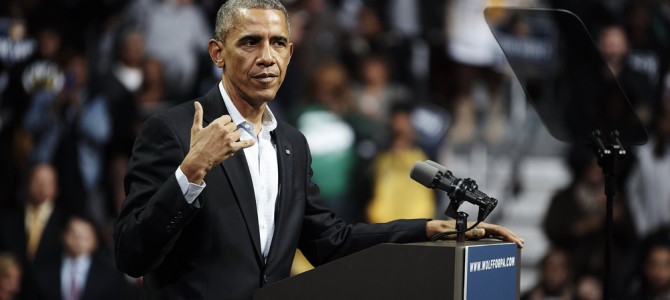Religious freedom has been in the headlines, even prompting a discussion in the most recent Republican presidential debate. Many Americans justifiably struggle with the question: when should we make exceptions to general laws to protect someone’s conscience?
There are hard cases of religious conscience, and then there are easy ones. When the government has lots of ways to govern without trampling religious belief, it should be an easy case. We saw one last week when a federal appeals court ruled in favor of Dordt College and other religious nonprofit organizations trying to follow their faith. These groups can’t participate in a web of government regulations that would provide life-terminating drugs to their employees. So the ministries must choose to violate their faith or violate the law, to the tune of millions in Internal Revenue Service fines.
It’s the same choice faced by the Little Sisters of the Poor. If the Little Sisters don’t comply with this contraceptive mandate, they face millions in IRS fines. This is a group that provides vital care for thousands of elderly poor—exactly the sort of care that should be supported and encouraged by the nation’s health-care laws.
Accommodation Really Means Intolerance
At issue in the Little Sisters’ case is the U.S. Department of Health and Human Services mandate, a Byzantine web of regulations designed to use religious groups’ health-care plans to provide life-terminating drugs and contraceptives to their employees. The groups cannot, in good conscience, provide those drugs or help anyone else provide those drugs.
The government insists they must use their health-care plans to provide those drugs, even forcing the religious groups to authorize it. The government calls this an “accommodation” of religious belief, even as dozens of religious groups challenge the regulations. The government insists the religious groups shouldn’t be bothered by what they consider a grave wrong. It insists that the accommodation doesn’t have anything to do with religious groups, even as it admits to the Supreme Court that its scheme uses the religious ministries’ own health-care plans.
The sad fact is that the government has a win-win solution at its fingertips. As a federal appeals court said in the Dordt College case last week, the government already operates exchanges where millions of Americans can obtain health coverage. Subsidies are available to those whose employers don’t provide health insurance.
This is how the government provides for those whose employers do not provide the generous health-care benefits many religious ministries already provide. The government could easily open those subsidies to any employees of religious groups who want the coverage not included in their employers’ plan. This would satisfy the government’s concerns, satisfy the ministries’ religious beliefs, and ensure that Americans still receive vital services from groups like the Little Sisters.
We Can Do Both
For that reason, the Eighth Circuit Court of appeals sided with religious ministries last week. Echoing a unanimous Supreme Court opinion on religious freedom, it said, “[I]f a less restrictive means is available for the Government to achieve its goals, the Government must use it.”
Although the solution is easy, it will probably take another Supreme Court intervention to make it happen. Last week’s court decision disagrees with rulings from several other appeals courts, creating the circuit split that Supreme Court-watchers have been predicting. When federal appeals courts disagree on an important issue like this one, Supreme Court review is very likely. That court returns from its summer recess next week, and it will have to decide whether to take up the case of the Little Sisters of the Poor, East Texas Baptist University, and other religious ministries.
The Supreme Court has been friendly to religious freedom, with recent rulings in favor of Hobby Lobby on a similar challenge, a unanimous victory for religious prison inmates in Holt v. Hobbs, and several emergency orders protecting religious ministries from fines under the HHS mandate. Let’s hope the Court continues this trend, recognizing that when religious freedom and government regulations conflict, it does not have to be a zero-sum game.









